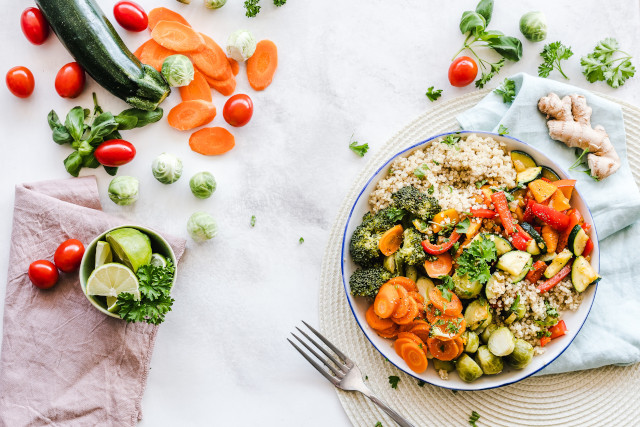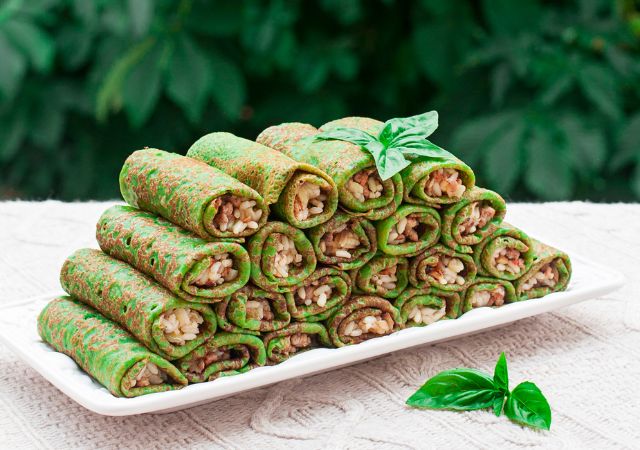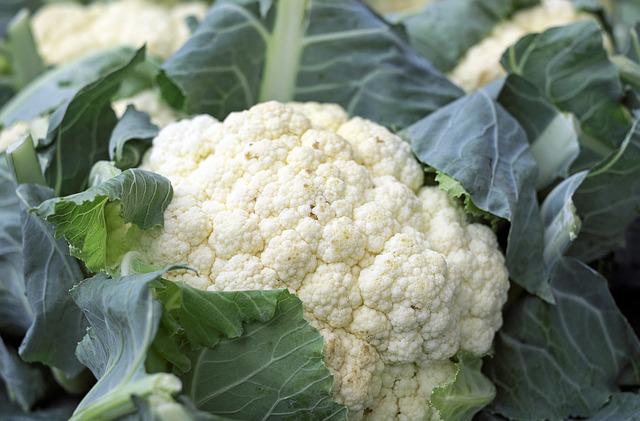
Diabetes and the meal plan, what a challenge this can be. There are so many wise words that have been spoken over time, however, which do we find to be the truth about nutrition and Diabetes?
Contents
For years, it was said to avoid white vegetables if you are diabetic. However, Cauliflower is the exception to this rule. What else is Cauliflower an exception to? Is it truly a bland vegetable that is difficult to eat since there is no flavour?
Diabetics run a gamut of good foods and bad foods. Many of these will depend on how they are cooked or eaten. Yes! It is not just the type of vegetable, it is also how this vegetable is prepared.
Nutrition in Cauliflower
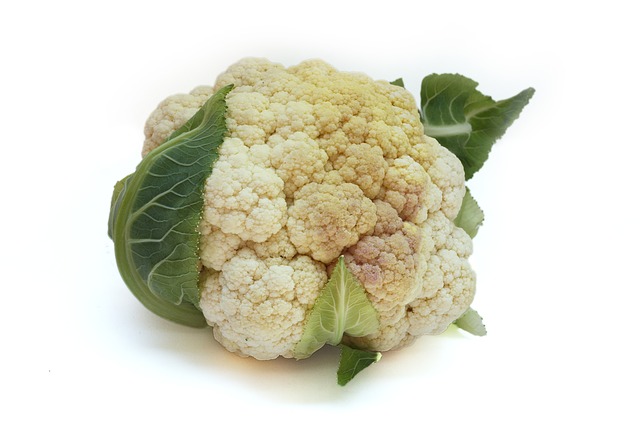
One cup of Cauliflower or one serving provides the following nutritional benefits.
- Calories: 27
- Fat: 0.3g
- Sodium: 32.1 mg
- Carbohydrates: 5.3 g
- Fibre: 2.1 g
- Sugar: 2 g
- Protein: 2.1 g
- Vitamin B6: 0.2mg
- Vitamin C: 51.6 mg
- Magnesium: 16 mg
The Carbohydrates in the head of Cauliflower are a non-starchy and complex type. This type of Carbohydrate is high in fibre and has a low amount of natural sugars. Cauliflower is low on the glycemic index with a level of 15 to 30, meaning this will not cause a sugar spike.
When cauliflower is used as a replacement for pasta or rice, it has roughly ⅙ of the number of carbohydrates. Diabetics do need to watch how many carbohydrates they consume, Cauliflower is the perfect substitute.
Cauliflower is cholesterol-free and has only a trace amount of fats. Cauliflower has only a small amount of protein. You will need to add another source of protein to your diet. Cauliflower is a great source of Vitamin C, which is more than half of the recommended daily requirement. There is also a good amount of Magnesium and Vitamin B6.
Other nutrients include calcium, iron, phosphorus, potassium, as well as zinc, copper, manganese and fluoride.
Advantages
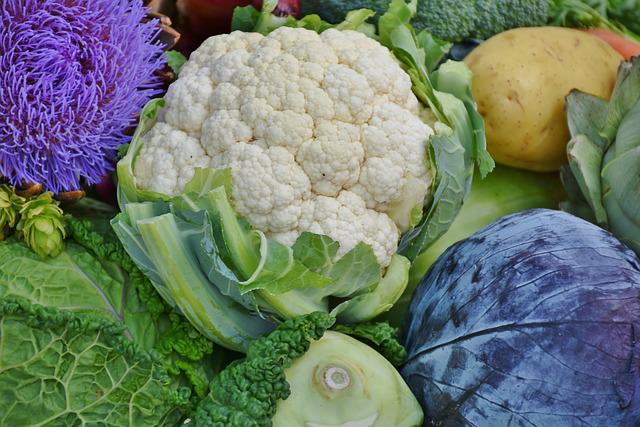
There are other advantages to keeping cauliflower in the diet for a diabetic. Cauliflower reduces the risk of cardiovascular disease. Cauliflower contains glucosinolates that have anti-inflammatory, antibacterial and anti-viral properties.
With a high water content, Cauliflower also helps to keep you hydrated.
Risks of Too Much Cauliflower
Eating too much cauliflower can affect how the body absorbs and the use of iodine by the Thyroid gland. Cauliflower has a high fibre content which can cause extra gastrointestinal distress.
The Vitamin K in Cauliflower may have an adverse effect on some medications. The high potassium content could impact the way in which statins and blood thinners are used to treat heart disease.
Other Health Benefits
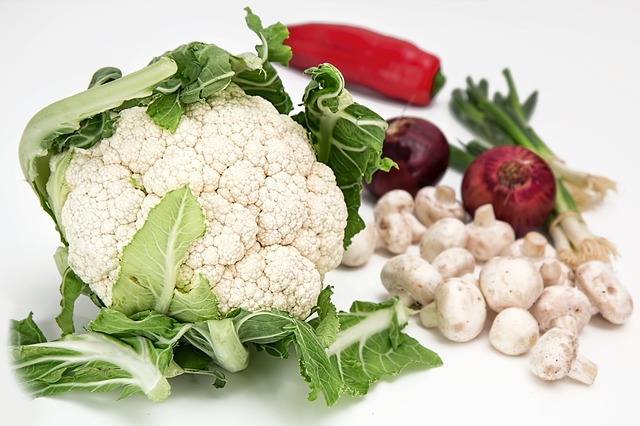
Cauliflower is known to help promote healthy digestion while promoting the growth of healthy bacteria. Cauliflower may help to lower the risk of respiratory diseases, heart conditions and obesity. It is also believed that consuming Cauliflower may have an impact on cognitive decline, it may help to slow it down.
Cauliflower also helps to reduce the build-up of fatty acid in the arteries. The consumption of Cauliflower may help reduce cholesterol levels.
Vitamin C is known to help fight off cell damage.
Cauliflower allows a person to feel satiated for a longer period of time. When you feel full for a longer period of time, there is less risk of impulse snacking.
Cauliflower Rice
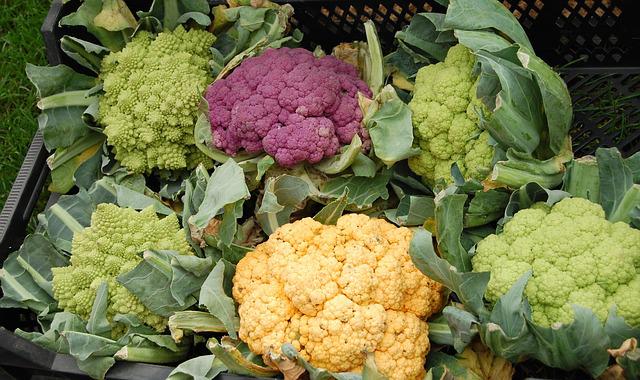
As one of the most popular types of replacement, Cauliflower rice is simple to make and makes an easy replacement for ordinary rice.
Cauliflower Mash is another replacement. This is perfect to replace potatoes in any meal. Cauliflower mash is quite similar to mashed potatoes and the way they are made. The cauliflower is cooked, beat with milk or heavy cream and then a dollop of butter is added. The flavour is very nice and substitutes perfectly.
Cooking Methods
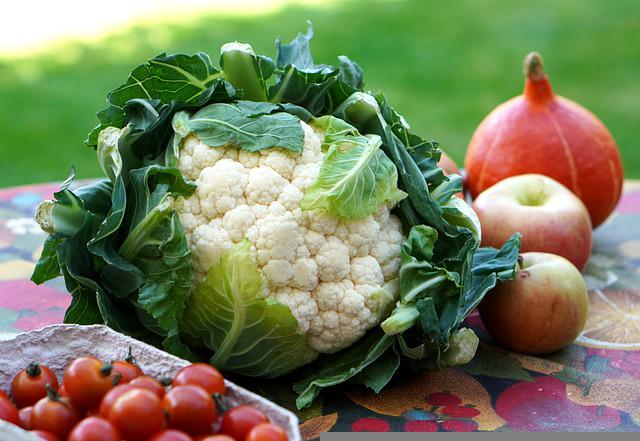
Cauliflower can be cooked in many different manners. The common method is to boil or simmer the cauliflower until it is al dente’. However, Cauliflower can be roasted, baked, fried and even grilled.
What makes Cauliflower and all other foods taste great is the way they are seasoned, if at all. Sometimes simple is best, however, herbs and spices make for great flavour additions too.
For instance, chilli powder or taco seasoning gives spice and heat. Cinnamon will make the taste buds jump in delight. Adding lemon pepper seasoning is a highlight to any recipe. Sometimes, just a sprinkle of powdered butter flavouring is enough to make a dish taste out of the world.
Cauliflower does not have to be cooked in any way to be enjoyed. Raw Cauliflower is a great snack that will satisfy even the hungriest person. The crunch gives a bit of satisfaction while chewing helps to convince your body that you have eaten enough, mainly if you chew enough to make your jaw sore.
Cauliflower is wonderful when it is steamed to the perfect crispness.
Varieties
There are multiple colours of Cauliflower. There is the common white cauliflower, purple cauliflower and also green and yellow cauliflower.
Vegetables and Carbohydrates
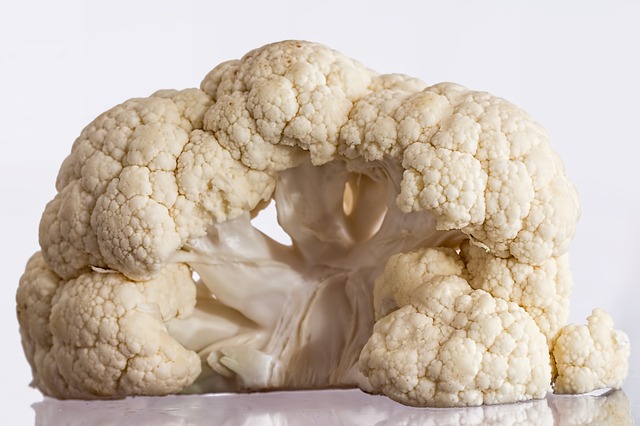
Cauliflower is one of few vegetables that offer such an array of nutrition, while at the same time being delicious. Cauliflower is actually low in Carbohydrates which is a bonus to those with Diabetes.
Storage and Safety
Cauliflower should be refrigerated, kept covered and stored stem down until ready to use. Once cauliflower is cooked, it can be kept in an airtight container in the refrigerator for 3 to 4 days. You could also place it into a freezer bag and store it in the freezer for up to 3 months.
Cauliflower is a very nutrient-dense vegetable with huge benefits for Diabetic patients. Cauliflower can also help to maintain a healthy weight limit and fight off obesity. Cauliflower is a vegetable that helps to fill a person up, which will help reduce obesity.
Cauliflower can be eaten raw as a snack, raw in salads, cooked into a casserole or added to soups and stews.
Cauliflower and Allergies
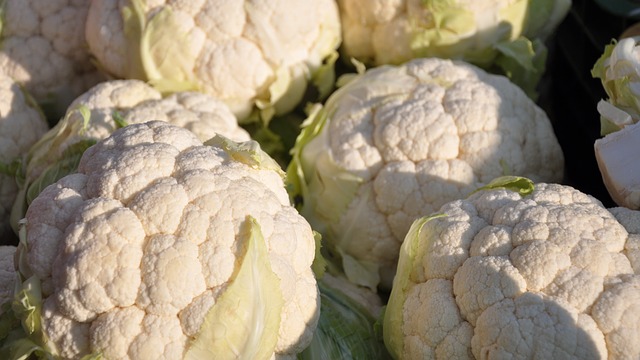
It is not common to find a person who has allergies to Cauliflower. However, it does happen, there are also those who do have allergic reactions to vegetables such as cabbage and broccoli, and those people may also have a reaction to Cauliflower.
There are also reports of people who have hay fever due to mugwort pollen, they may experience Oral Allergy Syndrome.
Symptoms include itching and swelling around the mouth, and rarely anaphylaxis.
Diabetic patients need to maintain a healthy diet plan to keep their blood glucose under control. The best plan that will enable you to do so is to go on a shopping spree for healthy fruits and vegetables. The vegetables need to be washed well, cut into florets or pieces and can be kept in snack-size bags along with other vegetables or singly which is fine also.
Preparing snack bags is going to make following a healthier routine much easier. Making a snack bag with a variety of vegetables, fruits, certain nuts and low-fat cheese pieces will make it easier.
The variety within each snack bag prevents the same taste all the time. Switching up the types of vegetables, fruits and lean cuts of meat will prevent routine from becoming boring.
Best Time of Day
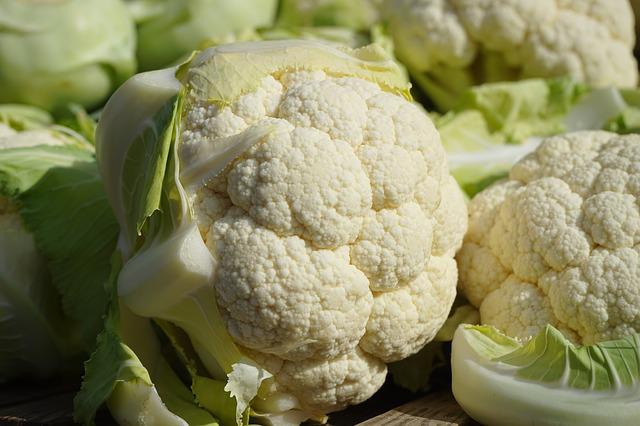
It is believed that the best time of day to eat Cauliflower or have Cauliflower snacks would be in the first half of the day. Cauliflower can be eaten at any time of the day. It works to replace other vegetables in any meal, it can also help you to eat healthier as it is a non-starchy vegetable.
There are so many good reasons that you should add Cauliflower to your healthy diet. Especially if you are diabetic. Cauliflower is high in fibre, helping to prevent constipation. Cauliflower is great at working to keep your heart healthy as well as keeping the blood glucose levels down.
Another surprising benefit of Cauliflower is that Cauliflower is good for eye and bone health. Consuming cauliflower as part of a post-workout meal will help you to stay hydrated and replenish some of the nutrients that were burned out during the workout. Cauliflower is an excellent immune booster, all this Vitamin C can help to absorb the iron in your body.
When it comes to Cauliflower, not only is the Glycemic index very low, but the Glycemic Load is also very low. All in all, this makes Cauliflower, when combined with all the nutrients and Vitamins, makes the almost perfect food. For that face, it is perfect as a food for a Diabetic.
As good of food as Cauliflower is, there is also a risk if you eat too much. There could be bloating, gas, or another stomach upset. There is also Vitamin K found in Cauliflower. Vitamin K can interact with blood thinners. It is suggested that the Diabetic Patient speaks with the Medical Professional team. The Professionals will be able to suggest if consuming Cauliflower is a good idea for you if you are also on blood-thinning medications.


